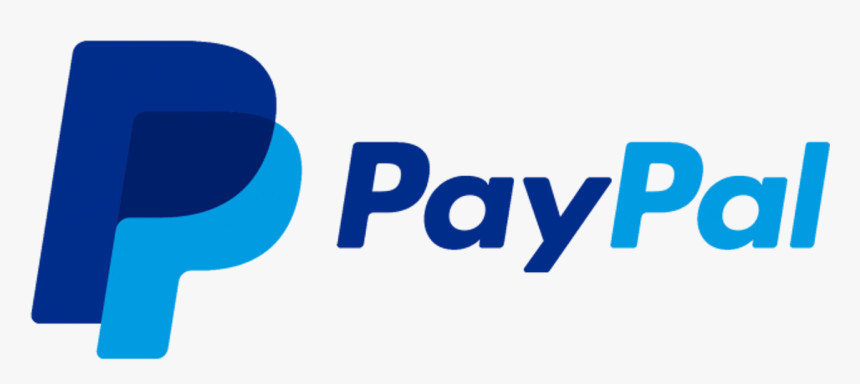PayPal Holdings Inc. has decided to launch a stablecoin, which would be the first case of its kind for a major financial firm, in what is likely to be a major boost to the slow adoption of digital currencies in the payments space.
The San Jose, California-based electronic payments company said Monday that the PayPal token (PYUSD), issued by Paxos Trust Co., is fully backed by US dollar deposits, short-term Treasury bills and cash equivalents. . The currency will be pegged to the dollar and will gradually be made available to US PayPal customers.
With the introduction of PayPal USD, Dan Schulman, CEO of the company, seeks to solidify PayPal's dominance in digital payments by building on technology that enables instant, low-cost transfers without a central middleman. PayPal shares plunged 33% over the past twelve months, the sixth worst performer against the Nasdaq 100, as online payments, which were high during the pandemic, declined.
“Our vision is for this to become part of the universal payments infrastructure,” Schulman, who is set to step down in the coming months, said in an interview.
Limited advances in consumer payments
Stablecoins — cryptocurrency tokens pegged to an asset like the dollar — have been around for nearly a decade, but they're mostly used by traders to transfer digital assets between exchanges, where they've made limited headway in consumer payments. There are nearly $126 billion worth of stablecoins in circulation, according to CoinGecko, the largest by far being Tether Holdings Ltd's USDT.
Some of these coins have sparked controversy, with one high-profile attempt by Meta collapsed last year after a regulatory backlash. This past February, PayPal halted its efforts to issue PayPal USD as regulators intensified their scrutiny of cryptocurrencies.
Jose Fernandez Da Ponte, Head of the Blockchain and Cryptocurrency Team at PayPal, mentioned in an interview that the company believes the regulatory environment is currently moving towards more clarity, and sees a rise in demand for an alternative stablecoin due to how concentrated the market is.
Last month, the House Financial Services Committee introduced a bill to regulate stablecoin cryptocurrencies, which was endorsed by Patrick McHenry, R-North Carolina.
In a statement on Monday, McHenry said PayPalUSD shows that stablecoins - if issued under a clear regulatory framework - hold promise for payment systems. Clear regulations and a strong consumer protection framework are essential in order for stablecoins to reach their full potential.
PayPal's expansion into crypto
PayPal USD is designed to be redeemable in dollars at all times, and exchangeable for other cryptocurrencies available on the PayPal network. It can be used to fund purchases, and will soon be available on PayPal's popular payments app, Venmo. Users will eventually be able to send their tokens between PayPal and Venmo Wallet.
The currency can also be transferred to compatible external wallets outside the PayPal network.
PayPal, which has more than 431 million active accounts globally, first launched its cryptocurrency services in 2020. It allows users to buy, sell and make payments using a range of tokens such as Bitcoin via its platform.
The company said last week that it had to set aside more money in the second quarter to cover non-performing loans it made to merchants, sending its shares losing 12% in one day. PayPal has expanded its services to millions of consumers and merchants across its many platforms, including working capital loans and money transfers. Shares of PayPal rose 1.6% in early trading Monday.
Internal breakdown of tera usd
PayPal expects PayPal USD to be initially used primarily in the cryptocurrency and Web3 sectors, such as trading in and out of other digital tokens and in-game payments, before gradually gaining adoption in areas such as transfers and micropayments.
Stablecoin proponents have long argued that it is an excellent way to implement cheap and instant money transfers and payments. But they have also faced opposition from central banks busy developing their own digital currencies and, in the case of USDT, speculation centering around the quality of reserves.
The biggest setback for stablecoins was the implosion of TerraUSD in May 2022, when the complex algorithmic system supporting them failed, leading to a broader crash in cryptocurrencies. US prosecutors have charged its creator Do Kwon, a South Korean citizen, with fraud, saying the incident cost investors about $40 billion.
“The events of the past year have cast serious doubts about the ability of stablecoins to function as money,” Augustin Carstens, president of the Bank for International Settlements, said in a speech in February. These currencies should draw more credibility from their sovereign fiat counterparts.
Paxos and Binance relationship
In February, the New York Department of Financial Services said it had ordered Paxos to stop issuing a branded stablecoin for cryptocurrency platform Binance known as BUSD. The New York regulator said at the time that its decision was the result of several outstanding issues related to Paxos' oversight of its relationship with Binance.
Paxos is regulated by the New York Department of Financial Services, and PayPal USD will be a regulated product in New York State.
PayPal was granted a domestic crypto license by the regulator in June last year.
Schulman said PayPal has held extensive discussions with US regulators and policymakers, and is preparing to introduce PayPal USD. He added: We are at a point now in the talks where we feel comfortable with the transition of a reputable and well-regulated US financial entity to a stablecoin platform, which we believe is an important initial step.
PayPal said that starting next September, Paxos will publish monthly reports detailing the assets that support PayPal USD. It will also publish a third party authentication certificate by an accounting firm on the PayPal USD reserve assets.







































